What do self-driving vehicles mean for jobs and the economy?
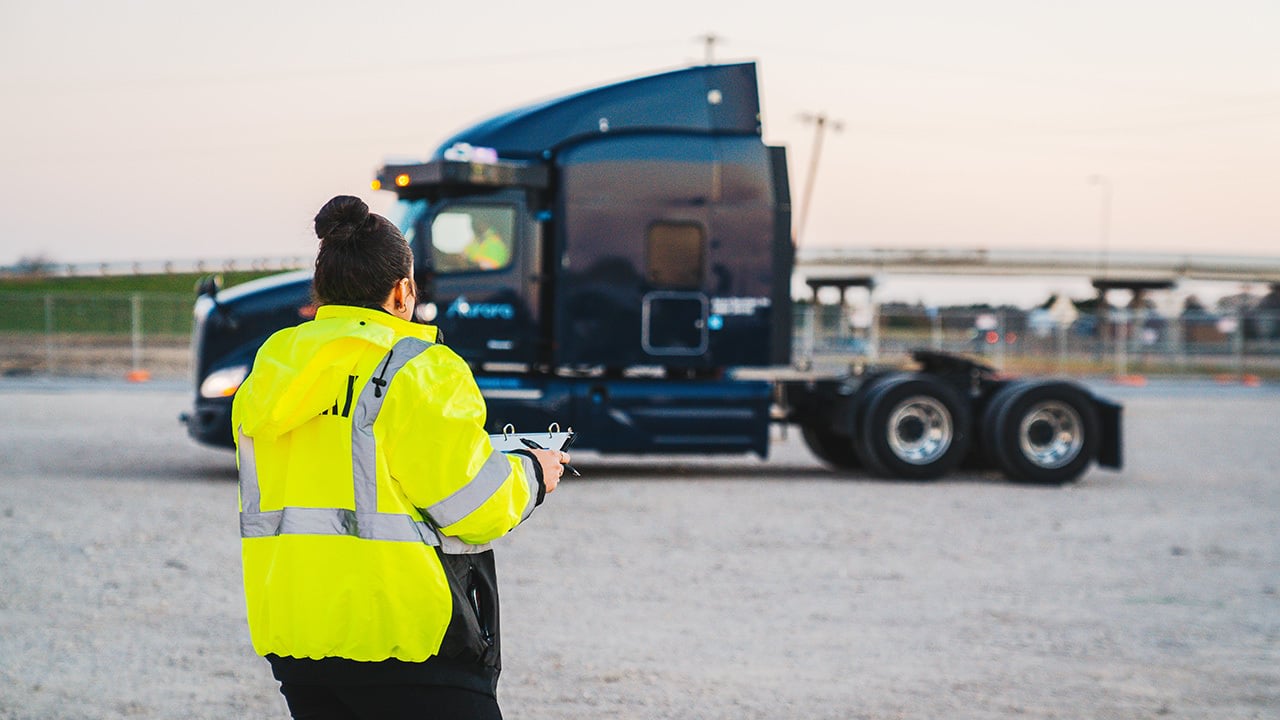
Autonomous trucks are delivering goods for customers, and they’re ushering in a world with safer roads and stronger supply chains. But as self-driving fleets commercially scale, what effects can we expect on jobs and the economy?
The U.S. Department of Transportation studied this issue closely and, in 2021, issued a report on the macroeconomic impacts of automation in long-haul trucking. The report concludes that any decreases in trucking jobs will likely be due to natural occupational turnover rather than significant layoffs. What’s more, the report estimates that autonomous trucking will create 26,400 to 35,100 new jobs per year on average.
So what will these new jobs look like? And how might existing jobs change? Let’s dive deeper.
Eyes on the future: New jobs for a new economy
To plan for the jobs the autonomous vehicle industry will create in the coming decades, Aurora is laying the foundation for what these roles will look like and how workers will gain the skills and experience needed to succeed.
Aurora’s commercial-ready terminal in Palmer, Texas, and our growing Command Center are great examples of how the autonomous vehicle industry will create new workforce opportunities across the country. Our terminals provide services necessary to operate and scale self-driving fleets, including fueling, weigh stations, on-site maintenance, sensor calibration, and more, while our Command Center supports vehicles through dispatch, remote assistance, incident response, and asset management functions. These functions will help optimize fleet uptime, support safe operation of trucks on the road, and, crucially, involve a range of new jobs.
Aurora has already created many new roles to support autonomous trucking technology and its scaled deployment, including:
Terminal Operators who handle tasks within the terminals, including pre- and post-trip inspections, transfers and management of trailers, and logistics management.
Fleet Support Technicians—the “Mechanics of the 21st Century”—who maintain autonomous trucks’ sensors and systems and maximize vehicle uptime.
Command Center Specialists who, among other things, provide remote assistance and advice to the Aurora Driver when it comes across something unexpected on the road and needs guidance, like an unmapped road closure.
Fleet Dispatch Specialists who manage autonomous vehicle fleets and help ensure availability for customers.
Autonomous Vehicle Operations Specialists with commercial driver’s licenses (CDLs) who support the testing and validation of our autonomous trucks and passenger vehicles. These specialists will be essential in the coming years as we continue to develop and validate new capabilities for the Aurora Driver.
Mapping Quality Specialists who process and triage map issues, including improving tooling for scalability of high-definition maps.
Lidar and Sensor Engineers who develop new and improved sensor technologies that help Aurora Driver-powered autonomous vehicles see and react quickly to circumstances on the road.
The qualified experts who fill these roles won’t appear out of thin air; Aurora has cross-trained a number of its existing workforce to transition into many of these critical roles, and we’re working with local communities and academic institutions to build this workforce.
Recently, Aurora worked with Pittsburgh Technical College to design an associate degree program that trains and accredits Fleet Support Technicians, giving them the tools they need to maintain autonomous vehicles and support operations. This complements work with Gallatin College in Bozeman, Montana, where Aurora is investing in new educational facilities to train sensor engineers and develop advanced lidar sensors. As the need for these professionals grows, academic degrees, technical training programs, and apprenticeships will be essential in building the workforce of the future.
We have a diverse and talented team here at our terminals and Command Center, including experts who test and validate our autonomous trucks, maintain and monitor our vehicles, dispatch them to meet customers’ needs, and more. As we deploy larger and larger fleets, we’ll need more professionals to fill these crucial roles.
Stability & predictability: Expanding freight capacity and desirable job options for truck drivers
Autonomous vehicles won’t just create the opportunity for new jobs—they’ll complement America’s existing workforce and cover some of the freight routes that many human drivers find undesirable. For today’s truck drivers, this could mean a shift away from grueling long-haul routes and toward shorter trips that keep them closer to home.
A Bureau of Labor Statistics report cited that full truckload carriers (FTLs), which often target long-haul routes, had an average annual turnover rate of 94% between 1995-2017. Conversely, less-than-truckload carriers (LTLs), which often target shorter routes, had an average turnover rate of 11.7% during the same period. While FTLs are not exclusive to long-haul routes and LTLs are not exclusive to shorter routes, these numbers imply a compelling trend about the desirability of local hauls over long distances.
Long-haul trucking jobs mean spending more time on the road and driving for extended, uninterrupted periods, which can lead to fatigue or distraction. In fact, according to federal data, truck drivers are 10 times more likely to be killed on the job than the average American worker due to these increased risks.
Trucking is a story of bifurcation. There are some excellent jobs and some terrible jobs.
Above quote is from "Why driving big rig trucks is a job fewer Americans dream about doing," CNBC.
Autonomous trucks are uniquely suited to these longer routes that are more challenging for today’s truck drivers. They can make lengthy trips between terminals and across the country without leaving homes or families behind, and they’re able to drive for long hours without getting tired or distracted. Assigning these long-haul routes to autonomous trucks would also help expand the entire freight and logistics ecosystem, creating more demand for truck drivers on the shorter routes many prefer.
In addition to bolstering the safety on our roads, the resiliency of our supply chains, and the growth of our customers’ businesses, self-driving technology will benefit our workforce through new jobs and our communities through diversified economic growth—from Dallas to El Paso, Pittsburgh to Bozeman.
Visit www.aurora.tech/careers to learn about open positions on our team.
Related (06)
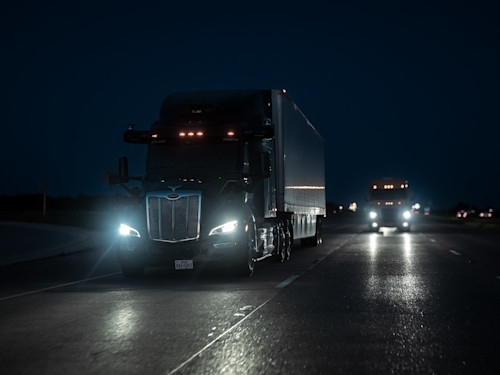
August 7, 2025
The Road Never Sleeps: Aurora’s Trucks Go Driverless Day and Night

March 31, 2025
Trust and Transparency: Aurora’s Work with Government Leaders Ahead of Self-Driving Operations
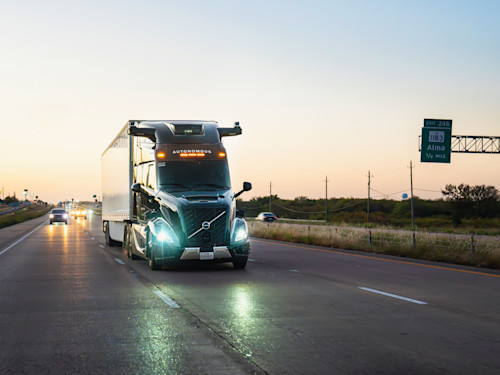
March 12, 2025
Answering More of Your Questions About Aurora and Autonomous Vehicles
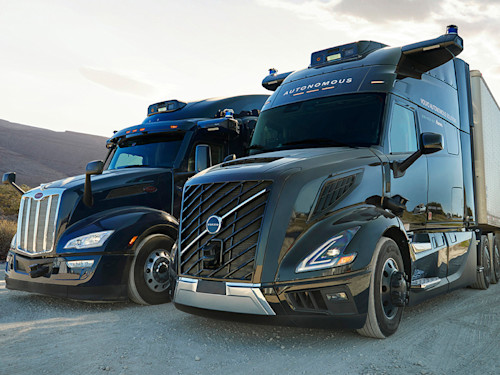
February 27, 2025
Have Questions About Aurora and AVs? Get Your Answers Here.
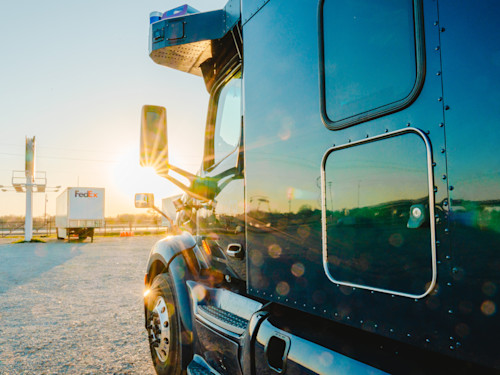
August 5, 2022
Recap: Aurora’s Q2 2022 progress toward commercial launch
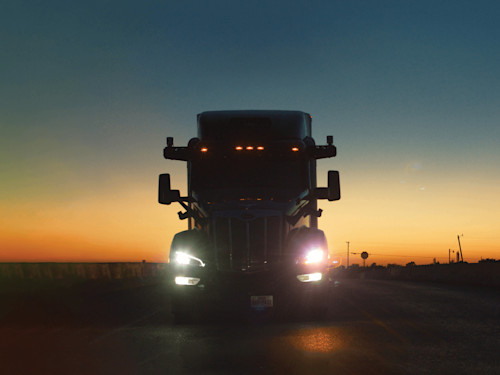
November 4, 2022